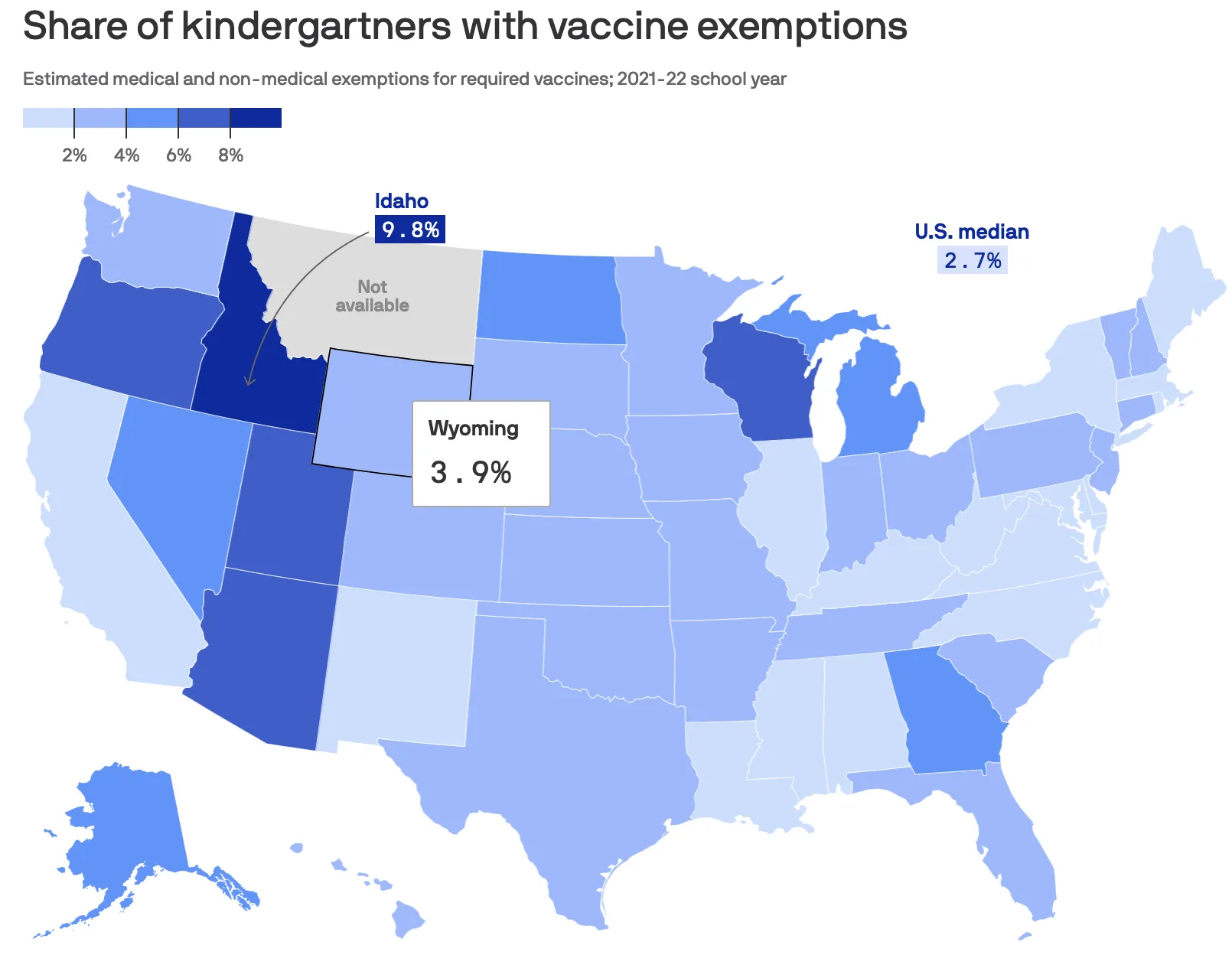November 19, 2024
Some public schools continue to increase the number of vaccination exemptions given to kindergartners

Graph by Kavya Beheraj, Axios, from CDC data
Even before the pandemic years, the number of vaccination exemptions issued for kindergartners entering public schools was on the rise. According to estimates from the Centers for Disease Control and Prevention, when allowances from school years ending in 2012 to 2022 were tallied, the "nationwide median rate of kindergartners with vaccine exemptions nearly doubled," report Alex Fitzpatrick and Kavya Beheraj of Axios. The political debate over Covid-19 vaccinations could be adding to "vaccine skepticism among a relatively small but growing number of parents."
Schoolchildren are vaccinated to "reduce the spread of childhood illnesses — some potentially fatal — that once plagued the country, such as polio," Fitzpatrick and Beheraj explain. To be admitted to public school, children are required to have several vaccinations; however, "exemptions can be given for both medical and non-medical reasons." Some studies have "found an increased risk of infection from vaccine-preventable diseases among exempt children."
The number of exemptions public schools give varies by state, and the primary push to question vaccination requirements is driven by Republicans. Axios reports, "As of 2022, Idaho (9.8%), Utah (7.4%) and Oregon (7%) had the highest median kindergarten vaccination exemption rates. Mississippi, New York and West Virginia were tied for the lowest, at 0.1%. . . .with 85% of Democrats agreeing with such a requirement compared to 57% of Republicans. . . .While Democratic support for vaccine requirements held steady between pre- and post-pandemic years, Republican support took a remarkable nosedive, falling from 79% in 2019."
Despite the increase in parents seeking vaccination exemptions for their children, the number of students who aren't vaccinated remains relatively low. The nationwide median kindergarten vaccine exemption rate has "stayed at 2.5% or higher since 2020, coming in at 2.7% in 2022, the latest year for which data is available," Fitzpatrick and Beheraj write.
Most Americans support the national childhood vaccination program. A Pew Research Center survey revealed that "when it comes to the measles, mumps and rubella shot, 88% of Americans said the benefits outweigh the risks, compared to 10% who feel the opposite," Axios reports. "The share expressing confidence in the value of MMR vaccines is identical to the share who said this in 2019, before the coronavirus outbreak."